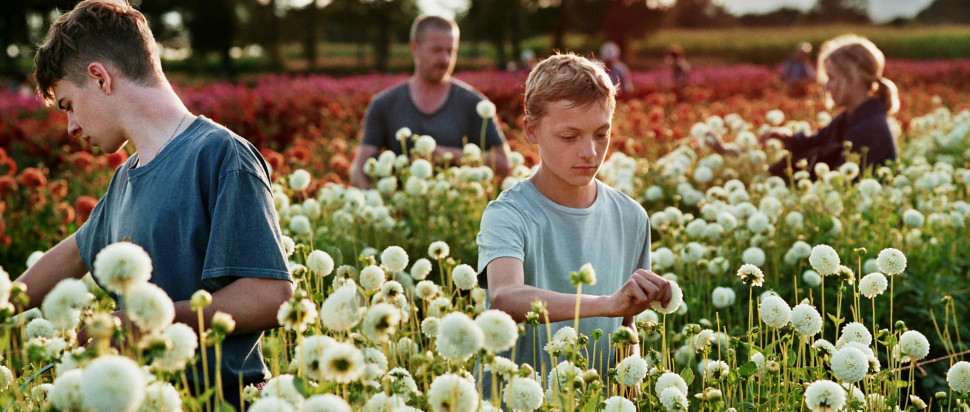Close
Lukas Dhont's latest film centres on two wonderful performances from first-time actors, but elsewhere this exploration of friendship and grief rings hollow
Following the ill-advised and poorly executed Girl, Lukas Dhont attempts a new exploration of adolescent vulnerability with Close, and he initially seems on far firmer ground here. The film’s titular dual meaning becomes evident as soon as best friends Léo and Rémi halt their summer idyll and start high school. The first tender minutes of Close explore the boy's friendship, with cinematographer Frank van den Eeden displaying an attention to colours, gestures, and sun-dappled lighting that the Grand Masters would envy.
The boys play games in Léo’s family’s poppy fields and create art behind bedroom doors: here, Rémi’s gentle oboe practice and sketches are so amateur that both boys collapse laughing. What happens next rends this closeness: at school, the closeness of their friendship is questioned by classmates. Léo immediately shuts these inquiries down and closes himself off from Rémi, joining the other boys playing pick-up football and hockey. Is he proving his masculinity as he begins to understand it? And what of Rémi, sidelined as he refuses to articulate his relationship with Léo?
Dhont's kinship with these boys' crisis of masculinity, however, does not translate into nuance, kindness, or verisimilitude. With Close, quiet violences erupts into playground fights and Dhont continues a vein of shock and trauma in lieu of meaningful interaction with ideas of belonging, social pressure, and youthful understanding of both matters. As a horrific tragedy, signposted from miles away, rips apart Léo’s place in his world further, Dhont seems to revel in teary eyes and the fundamental uselessness and misunderstandings of adults. It is a manipulative, misguided tromp through – not exploration of – mental health issues that other recent films, such as Charlotte Wells' Aftersun, handle with far greater grace and honesty. Once again, Dhont seems to use LGBTQ+ stigmatisation to invoke hand-wringing rather than sympathy.
What barely saves Close are its central performances, notably from the first-time actors playing Léo and Rémi. Eden Dambrine throws his entire body into Léo’s passions as ferociously as Léo throws himself into sports to avoid his own feelings. His outburst when he refutes a classmate's memory of Rémi digs into the thorny pervasiveness of grief that Léo is beginning to understand, if not articulate. De Waele plays Rémi’s emotions closer to the surface; even before the rift, tears just under the facade – often spilling over – are raw and real. Working in such an emotionally harrowing space for such extended sequences, one hopes that the young performers had strong pastoral care on set. The other child actors, with the exception of Igor van Dessel as Charlie (Léo’s almost-adult brother), do not distinguish themselves; they are means to an end (Léo’s end, both in growth and trauma) rather than fully fleshed characters themselves.
It is fundamentally frustrating to watch a film about a lack of communication – a subject many writers and directors have used to great effect. But when misunderstandings are taken as fact in a tale of children isolated, with unspeakable tragedy and guilt resulting, the effect is hollow. What Close gets right is the devastation of a friendship’s end; what it does not is everything else.
Released 3 Mar by Close; certificate 12A
